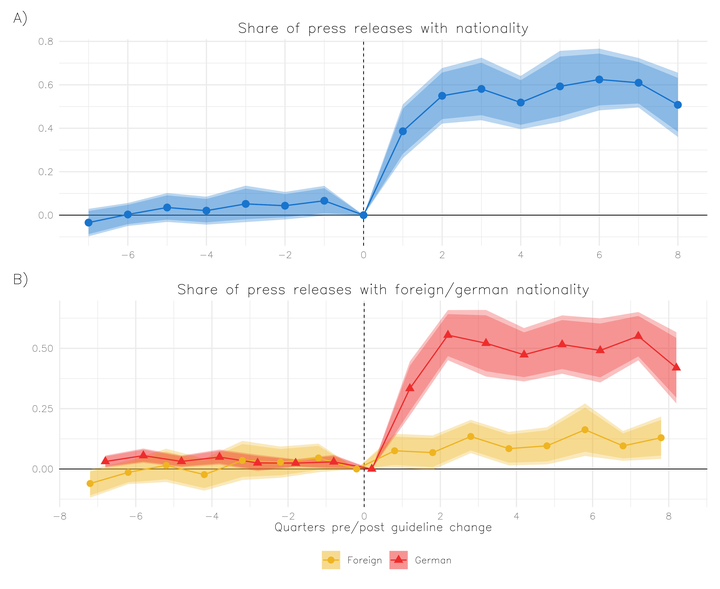The Need for a Tweet - Foreigner Criminality in Police Press Releases and Hate Speech on Social Media

Abstract
Draft coming soon - This study investigates the role of police communication in shaping public discourse on social media in the context of immigration, crime, and political populism. We compile a unique dataset of more than 1.5 million press releases from 220 local police entities published between 2016 and 2022 and analyze the implications of disclosing perpetrators' national origins when reporting on crime. Utilizing an instrumental variable approach, we attempt to disentangle the causal effect of naming suspects' nationalities in press releases from the general societal climate. Our findings indicate that disclosing nationalities leads to a higher likelihood of observing a police press release on Twitter, increased user engagement, and a rise in toxic tweets, predominantly driven by disclosed nationalities of perpetrators from Muslim-majority countries. We then analyze a unilateral policy change in Mecklenburg-Western Pomerania and find that the policy increased the disclosure of German nationalities without a systematic change in the general reaction on Twitter.